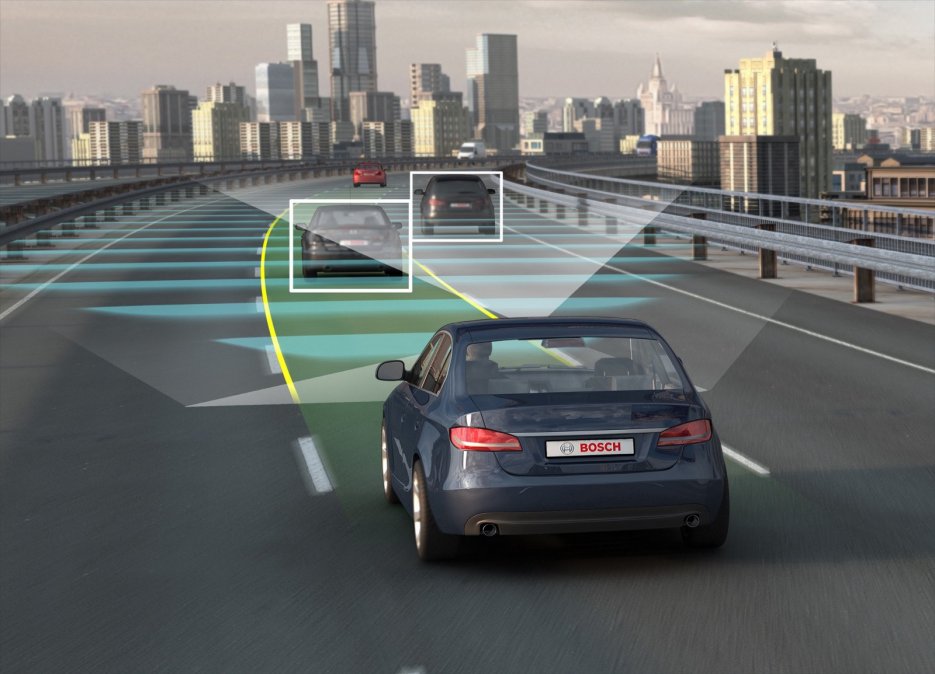Self-Driving Fleet Cars: Coming Soon?
Self-Driving Fleets: Are They The Future?
Having looked at electric fleets it seemed only logical to look at the other big thing in fleets at the moment, self-driving fleets. Self-driving or autonomous cars have gone from pipedream to reality in an astonishingly short space of time. The first attempts at driverless cars came in the 1920s with radio-controlled versions, but it has only really been since the early 2000s with the US military’s investment in driverless car research and later in 2009 with Google’s unveiling of their first autonomous cars that progress has accelerated.
The latest development has been taxi firm Uber’s launch of a fleet of autonomous taxis in Pittsburgh back in August 2017, something that has been (thus far) a success. With the pubic (slowly) coming to terms with the idea of driverless cars will we soon see driverless fleets plying our roads? And if so, what are the benefits and what are the implications for fleet insurance and fleet insurance providers such as Getaquoteinsurance? Let’s take a look at these issues in turn.

Will We Soon See Self-Driving Fleet Cars?
The answer to this is twofold. Firstly, we have to ask ourselves are fleet car drivers prepared to accept self-driving fleets. A recent survey by bobatoo showed that 27.7% of drivers would actively prefer to have a self-driving car and a further 25% said they were unsure about driverless cars. 48% said no, they wouldn’t want a self-driving car but such an emphatic response must surely be looked at in the context of suspicion of the unknown and the potential loss of control that self-driving cars bring.
Had we surveyed users of the driver-less Docklands Light Railway (the DLR) on the 30th August 1987 might we have not encountered a similar level of suspicion and wariness? Yet nigh-on thirty years later the DLR carries around 150 million people a year, has seen a safety record that is the envy of the rest of the Tube and has performance record that puts the rest in the shade with around 97% of trains running to time. And it’s not just trains that are becoming self-driving; in Helsinki, a fleet of driver-less buses has just been launched and closer to home; Cambridge now has a fleet of guided buses that are proving to be another weapon in solving the city’s notorious congestion problem.
Self-Driving Fleets: What Are the Benefits?
Driver adoptions of self-driving cars will, it’s fair to assume, come as trust is established. But the other side of the equation is whether businesses, and specifically fleet managers and fleet owners seeking to reduce fleet costs, will see a benefit. From a purely commercial perspective the benefits of self-driving fleets are numerous. The most important of these is time. For an employee to be able to use dead travelling time actively engaged in work while a computer takes the strain is a potential business game-changer. As every business traveller who has chosen the train over the car knows, the ability to spend time working while traveling is a huge attraction. And were this to be combined with the convenience of being ferried from door-to-door then the lure to businesses and business people alike must be significant.
Safety, ironically people’s greatest objection to autonomous cars, is also a prime argument for self-driving cars. With 94% of accidents being down to human error, the simple fact that businesses can avoid costly fleet insurance claims and the potential attendant loss of an employee owing to injury is a great benefit. This in turn feeds into wider considerations around fleet costs and the cost of fleet insurance. Fewer accidents mean fewer garage bills and fewer fleet insurance claims which will lead to lower fleet insurance costs. This is surely a virtuous circle that no fleet owner would want to ignore.
Like the DLR, driverless fleets have other time efficiencies. Being computer driven they can, technically at least, run 24/7 – no need for driver comfort breaks of sleep for them – and while the occupant is in a meeting they can drive off and find somewhere to refuel or recharge in the case of electric fleets vehicles.
And let’s not forget the growing issue of environmental sensitivity when it comes to running a fleet of vehicles. With their ability to run at optimum efficiency and their almost certain use of electric fleet vehicles, autonomous fleets could reduce carbon pollution emissions by public vehicles by as much as 60% according to the Electric Power Research Institute (EPRI). This coupled with a reputed reduction in employee stress means the outcomes of self-driving fleets could be good for this generation of drivers and the next.
Self-Driving Fleets: Who Takes Out the Insurance?
One of the most interesting issues surrounding self-driving fleets, and one that is already exercising potential manufactures, insurance companies, governments and fleet managers is who takes out the fleet insurance for self-driving fleets? At present, it is, of course, the fleet owner who takes out fleet insurance, but when a car is in self-drive or autonomous mode who is responsible for any insurance claims then? Some are already suggesting that it’s the manufacturer’s responsibility, in which case Ford, Mercedes and Google are set to look for the best fleet insurance quote they can find. Others are suggesting that the onus will still lays with the fleet manager or fleet owner, especially as semi-autonomous fleets – fleets where the driver still needs to there and be ready to take control – are the legal norm. This is an issue that only time and experience will solve, but it will be fascinating to see how it is resolved and where the responsibility for fleet insurance is found to lay.
Self-Driving Fleets Coming Soon… Probably.
Given the environmental, efficiency and potential fleet insurance savings that self-driving fleets can bring it seems unlikely that they will fail to appear on our roads sooner rather than later. Adoption will most likely come as a consequence of wider public acceptance of autonomous vehicles and the savings on offer will become irresistible to business that are looking to reduce the cost of running their fleets. If, as seems likely, autonomous fleets are also electric fleets then the future doesn’t just look rosy but green too.
Like To Know More About Fleet Insurance?
If you would like to know more about fleet insurance or would like some help getting the fleet insurance that’s right for you, then please contact us by calling us free on 0800 977 6037, email us by clicking here or get a no-obligation fleet insurance quote here.

